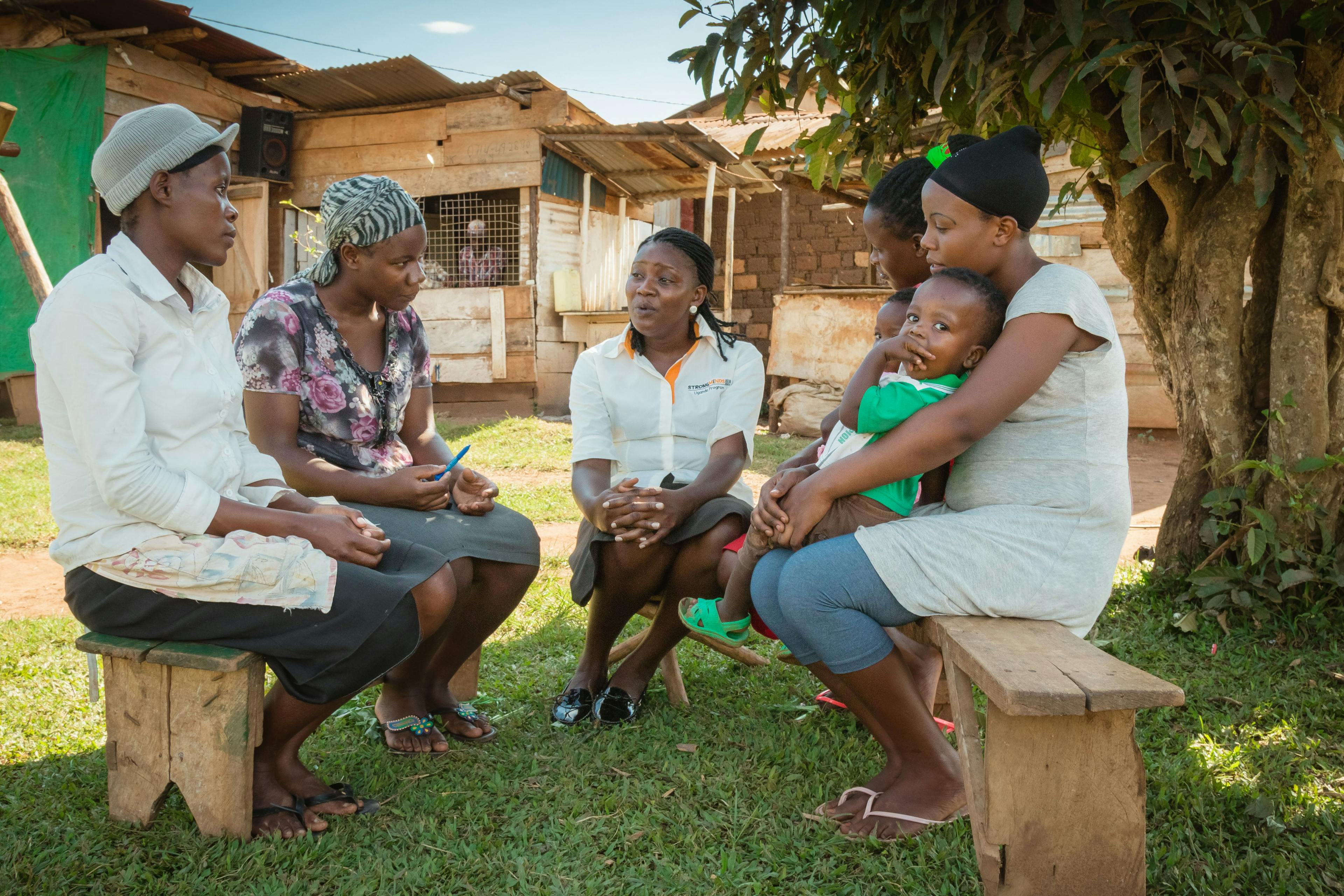StrongMinds

▲ Photo from StrongMinds
StrongMinds treats women’s depression using interpersonal group psychotherapy (IPT-G), an evidence-based intervention that has been shown cost-effectively reduce depression symptoms in randomized controlled trials.
What problem are they trying to solve?
Depression is a global problem with hundreds of millions of sufferers globally, but it is particularly acute in some low-income countries, where very few sufferers receive treatment. Despite the common misconception that depression is a “first-world problem,” incidence rates in low-income countries are as high or higher than those in the developed world. In Uganda, where StrongMinds works, the prevalence of depressive disorders is nearly twice the level found in high-income countries.
What do they do?
StrongMinds works both in Uganda and Zambia, where depression generates severe hardship for women in particular: stigma attached to the condition can result in social exclusion for sufferers.
StrongMinds’ model for delivering interpersonal group psychotherapy is delivered by lay community-based counselors: community members who guide therapy groups in which participants are encouraged to identify the triggers of their depression, examine their relationships, learn coping mechanisms, and practice interpersonal skills. Members of these groups form social bonds and learn how to manage their depression over the long term.
The form of IPT-G enabled by a donation to StrongMinds generates impacts comparable in scale to a similarly sized direct cash transfer; the organization can, in some settings, treat one woman for depression at a cost of roughly $100.
Why do we recommend them?
We recommend StrongMinds because IPT-G has shown significant promise as an evidence-backed intervention that can durably reduce depression symptoms. Crucial to our analysis are previous RCTs (see Bolton et al 2003 and Bolton et al 2007), as well as pre/post data from StrongMinds itself and work by our research partners.
We think that StrongMinds’ impact is highly uncertain: some recent studies have found less impressive results than the original RCTs, and some observers believe that high estimates of StrongMinds’ impact are optimistic. Yet our calculations of StrongMinds’ impact estimate cost-effectiveness inclusive of this uncertainty: with the information currently available, we think that a donation to StrongMinds is among the most cost-effective options available to donors seeking to improve people’s quality of life.
What would they do with more funding?
StrongMinds is able to expand its pool of beneficiaries roughly in proportion to the amount of funding it receives. The organization hopes to reach hundreds of thousands of new beneficiaries in the coming years, and even comparatively small donations can help to expand the size of this group.